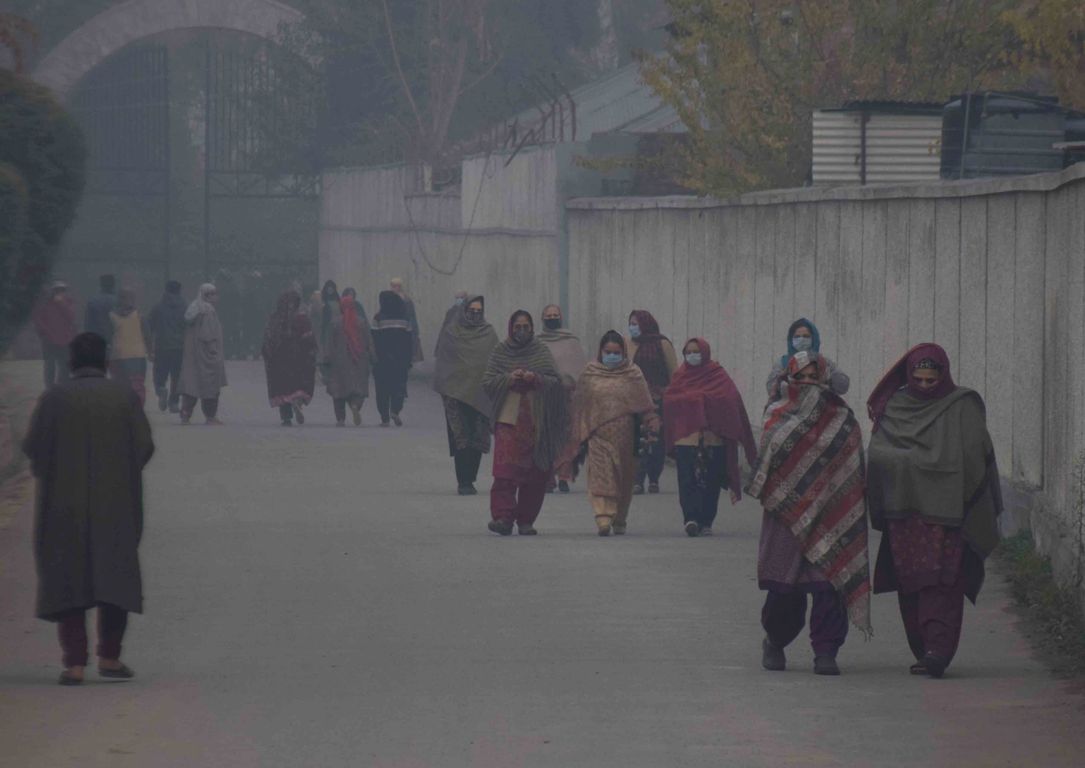JAMMU: At the end of a year, tons of money spent and nothing much on the ground. This has remained a perennial crisis that finance ministers were facing. The reason that was obvious was never admitted: The public money was not spent at all.
In J&K, for instance, a massive Rs 11,000 crore of the developmental funds are still unspent as the fiscal year end is barely 50 days away.
To manage this crisis, J&K government created a precedence that links movement of allocated funds with the time scale till it actually is spent. If unspent beyond set timelines, they will be deemed moved to the channels, which are tasked to spend, on the ground. Now, the babus will have to explain if the public money is stuck in their accounts beyond a limit and they are too busy to sign the papers.

Interestingly, this is not a directive; it is a law, which the assembly passed as part of the yearly appropriation bill. Finance Minister Dr Haseeb Drabu sought time to explain what the government did as part of the Bill that involves an expenditure of Rs 95666.97 crore for fiscal 2018-19, which is a 20% step up over the last year’s budget size of Rs 79472 crore.
So here are the timelines that will be attached to the movement of public money – for both revenue and the capital heads. Interestingly the time starts now as the Appropriation Bill stands passed by the House.
Stage 1: Within 15 days after the Appropriation Bill passes in the assembly- that means by February 18, as it has already passed, the Finance and the Planning Departments shall release both Revenue and Capital budget to all the administrative departments.
Stage 2: Drabu said the administrative departments should, in turn, ensure the release of funds to the subordinate offices within four weeks of their receipt. If they fail to do so, these funds shall be deemed to have been transferred to the intended DDOs on the dates they ought to have been released by the administrative departments /Controlling Officers.
“Planning Development and Monitoring Department shall ensure that all plan allocations to be made in the next fiscal bear proper classification, indicating, the name of the work/scheme against detailed Head-115 Works,” Drabu told the House. “In absence of the schematic classification, the relevant Capex release shall be deemed as invalid and not open to being operationalization.”
Stage 3: Planning, Development and Monitoring Department shall mandatorily upload on its website the department-wise “Name of the Schemes / Works / Projects”, forming part of the Capex budget for fiscal 2018-19, along with the respective allocations.
Stage 4: No payments shall be made by any Treasury / PAO from April 1, 2018, under any expenditure head, if the releases for the same have not been made and further received by the spending and bill passing Officers via BEAMS. In this case, now, Treasury Officers or PAOs shall be personally liable for making payments on the funds released and received bypassing the BEAMS application.
Stage 5: As for departmental procurements go, the plans of the departments for the next financial year shall be limited by an outermost cap of 60 days, starting April 1. He explained what it means: “From conceiving the nature and quantity of public goods and services to be procured to preparing tenders / RFQs / EoIs to finally awarding the contract, the departments shall compulsorily finish the whole process by 30 May 2018.” Any spillover in timelines shall be automatically visited with the appropriate disciplinary actions, Drabu told the House.
Stage 6: Funds shall be spent only on the approved items of the expenditure and strictly for the purpose they have been released. “There shall be no re-appropriation of funds except where the departments have spent 55% of funds received ending December 2017,” Drabu said. “In projects where the spending levels are below 55%, the balance funds shall lapse to the Government.”
Interestingly, the Bill restricts the expenditure during the last quarter to not more than 30% of the Revised Estimates. For this Treasury, officers shall be directly responsible. To tighten the situation, the bill says that the State Share of the Centrally Sponsored Schemes and the expenditure to be incurred on utility shifting, land compensation etc under PMDP projects shall be the first charge on the funds lapsing to the Government during the last quarter.
No Daily Wagers
What is also part of the law is that from now on, “no engagement of casual workers, need-based workers etc by any department” can take place. “The Planning, Monitoring and Development Department shall, invariably, condition all developmental/plan releases to the departments to the unconditional vouchsafing by the latter that they shall refrain from making fresh engagements,” Drabu said.
Why is it a major reform?
Interestingly, this is one of the major reforms that followed a slew of interventions aimed at making the public spending quick, visible and free from corruption. Insiders in the finance ministry said the new law would take a bit of time to trickle down to the ground level. But the system, which carries the change, is already in place.
Drabu told the House that the “expenditure reforms” across the departments shall further be strengthened by initiating measures including bringing complete transparency in the financial and administrative processes through increased IT interventions, ensuring authorisation of such works for execution only which have prior administrative approval, technical sanction and appropriate financial back up and ensure expenditure monitoring on real-time basis through BEAMS and PFMS.
This law will help the projects complete within the approved allocations without time and cost overruns. It is expected to get some transparency in the public spending and prevent parking of public funds in the FDRs and, in certain cases, the personal bank accounts of the officers managing a maze of developmental agencies.
The law in the first year will see the teething problems in its implementation, which would be taken care of the next fiscal.















